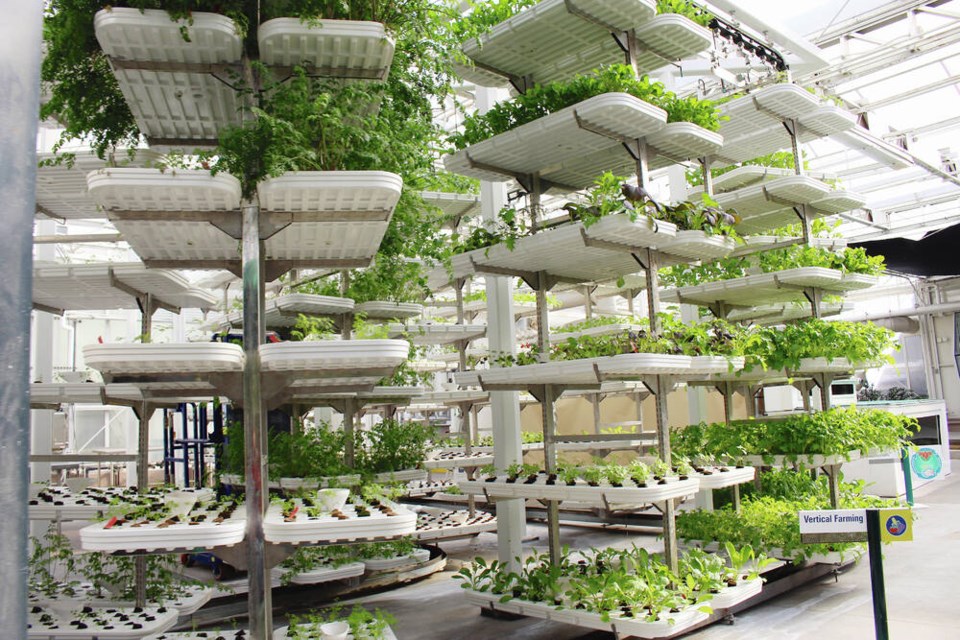The first three of the five “great turnarounds” in the Club of Rome’s “Earth for All” report address different aspects of inequality.
But the final two, to which I now turn, are concerned with two of the most fundamental determinants of our health: food and — next week — energy.
The Earth For All report notes: “The way we farm, transport and consume food affects more planetary boundaries than anything else.”
They go on to list these impacts, which include climate change, deforestation, biodiversity loss — including widespread depletion of fish stocks, massive use of freshwater, and pollution from fertilizers, pesticides and animal wastes.
Those ecological changes cut both ways, with the effects of climate change — high temperatures, droughts and floods — threatening agriculture in many parts of the world. The risk of “breadbasket failures” are real and growing.
Indeed, the lead author of a recent article in Nature Communication, titled “Risks of synchronized low yields are underestimated in climate and crop model projections,” told AFP that the study should be a “wake-up call in terms of our uncertainties.”
But climate and other ecological changes are not the only factors threatening the stability and resilience of what is, in fact, a rather fragile global food system. The system depends upon a relatively small number of countries and staple products, many grown as monocultures with little genetic variety, while an unhealthy and environmentally harmful Western diet is pushed by narrow commercial interests.
As we have seen in Ukraine, a relatively small local war can affect food availability and prices around the world, especially in many vulnerable low-income countries, potentially triggering social unrest and mass migration, and threatening democracy.
“We face a triple challenge in agriculture,” the Earth For All report concludes: “Produce more healthy food, without destroying the planet, while building resilient production systems that are able to withstand rising shocks.”
The report goes on to suggest three solutions.
The first is to revolutionize the way we farm. Given that we already use half of all land for agriculture and other purposes, this starts with not expanding the conversion of forests and other natural lands to agriculture. In fact, we need to grow more food on less land, while restoring natural systems.
Farmlands must become carbon sinks, not carbon emitters. They must enhance, not erode, biodiversity and they must restore the health of the soil.
This is an approach known as regenerative agriculture. It must be complemented by advanced technologies for managing agriculture efficiently, including “vertical farming” in cities.
The second solution is to change our diets. The Western diet, marketed around the world, is bad for health and for the planet. A more plant-based, low-meat diet — such as the new Canada Food Guide proposes — has many health and ecological benefits. In particular it requires less land per person, which reduces the pressure on land, allowing it to be farmed more sustainably.
Finally, we need to eliminate food loss and waste, which can also reduce the pressure on land.
The UN’s Food and Agriculture Organization estimates that globally, about one third of food is lost or wasted.
In high-income countries, we over-consume — portion size is too large, fueling obesity — and we discard too much edible food because it is blemished. In low-income countries, better storage, refrigeration and transportation is needed to reduce losses.
Here on Vancouver Island, most of our food is imported, and we have only enough food land to supply about 10 per cent of our needs, according to Prof. Rick Kool from the School of Environment and Sustainability at Royal Roads University, although that could be more with a low-meat diet.
The good news is that increasing the uptake of regenerative practices is one of the objectives of B.C.’s Ministry of Agriculture and Food, while the Sundown Centre in North Saanich provides a hub for regenerative agricultural practices in the region.
In addition, the City of Victoria is a founding partner in the “Love Food Hate Waste” campaign, a national program to reduce food waste in Canada.
The city is also home to the Zero Waste Emporium, Vancouver Island’s first zero waste grocery store.
But the big challenge is changing our diets and changing our over-consumption practices.
We still have a long way to go!
Dr. Trevor Hancock is a retired professor and senior scholar at the University of Victoria’s School of Public Health and Social Policy
>>> To comment on this article, write a letter to the editor: [email protected]


